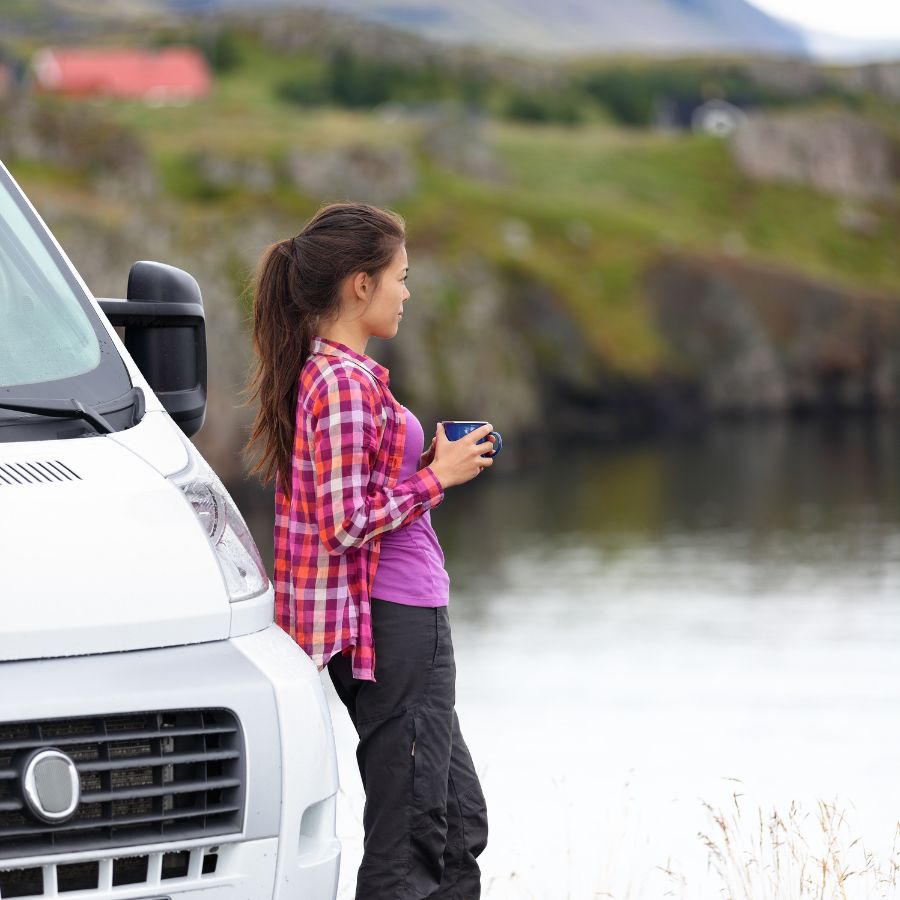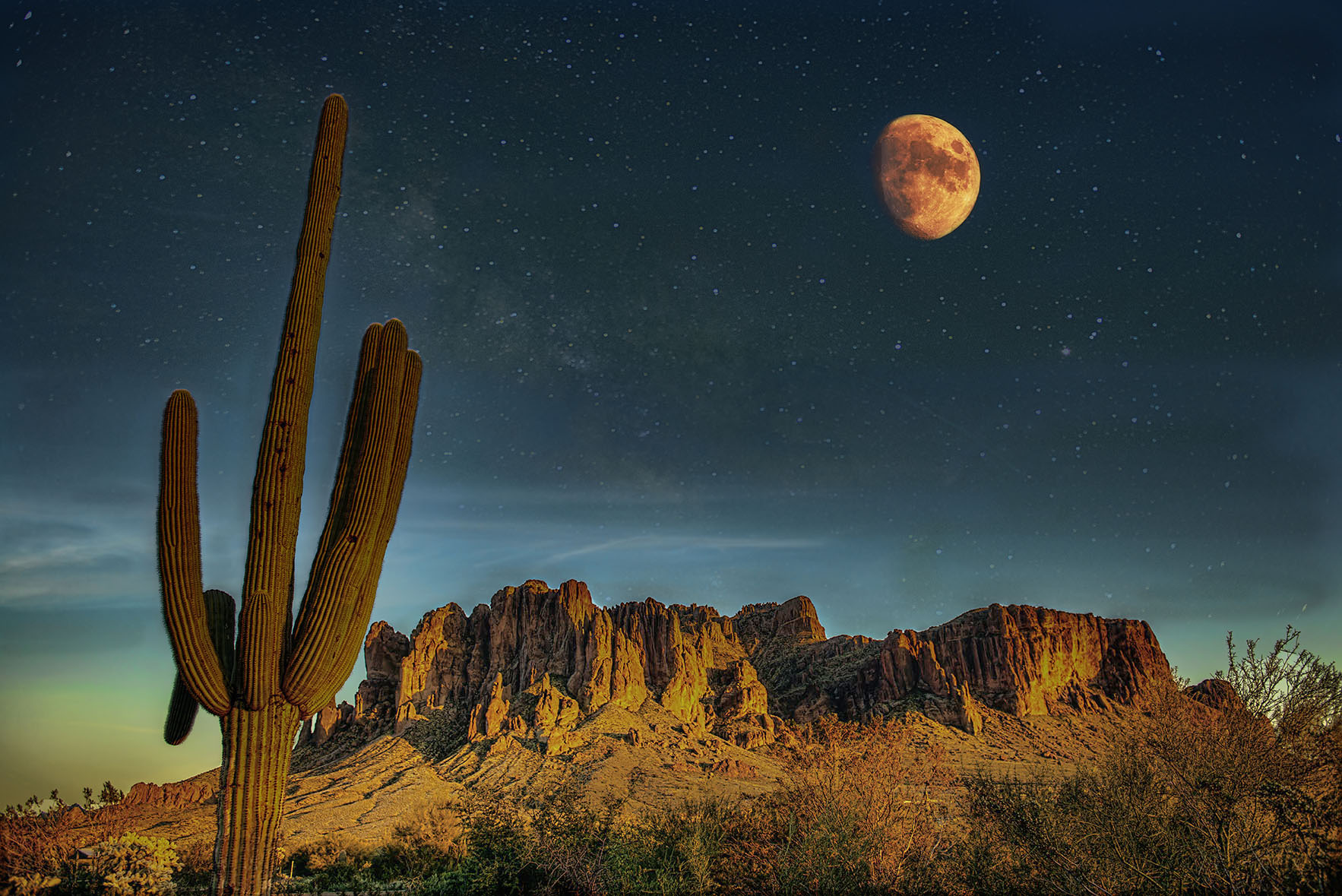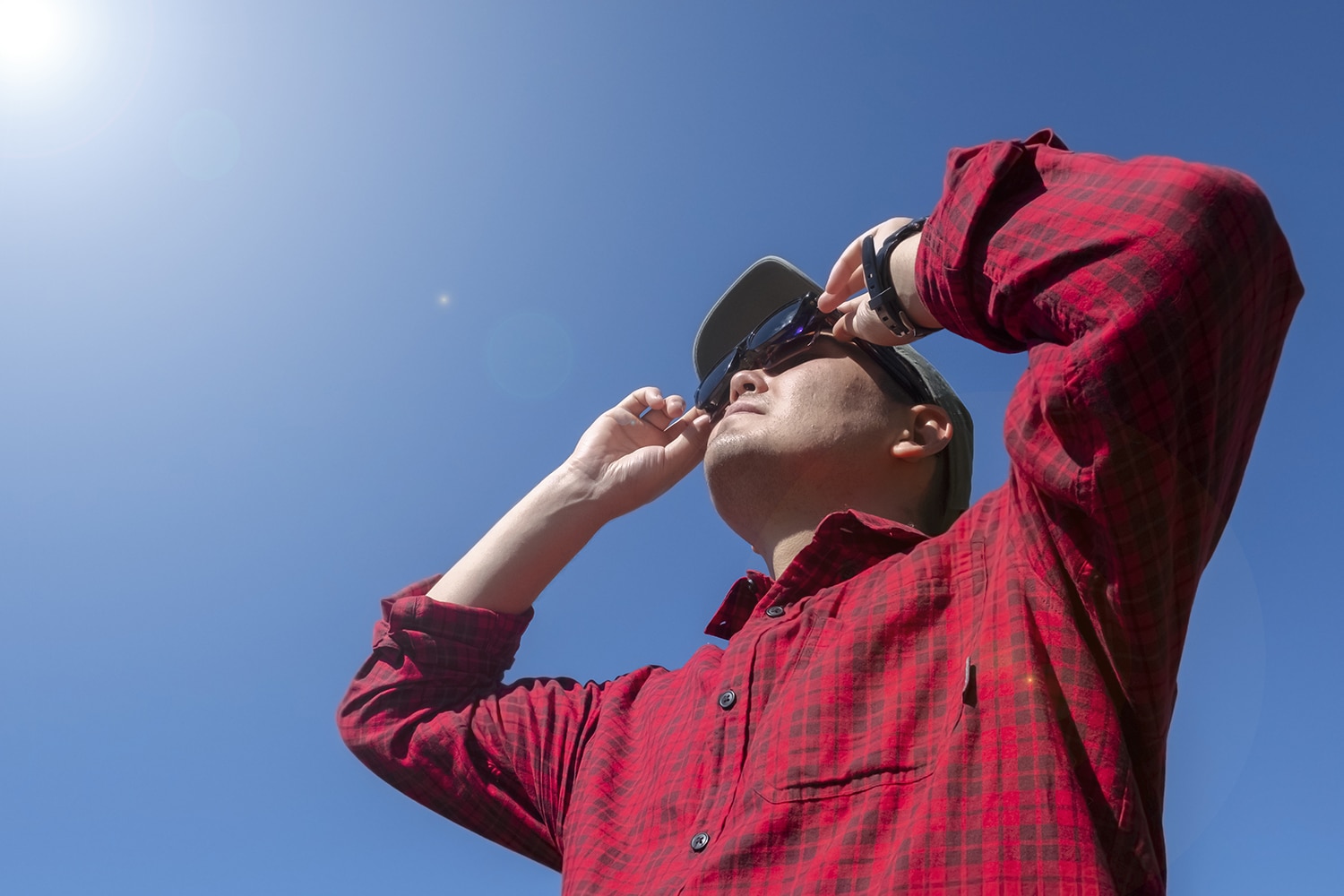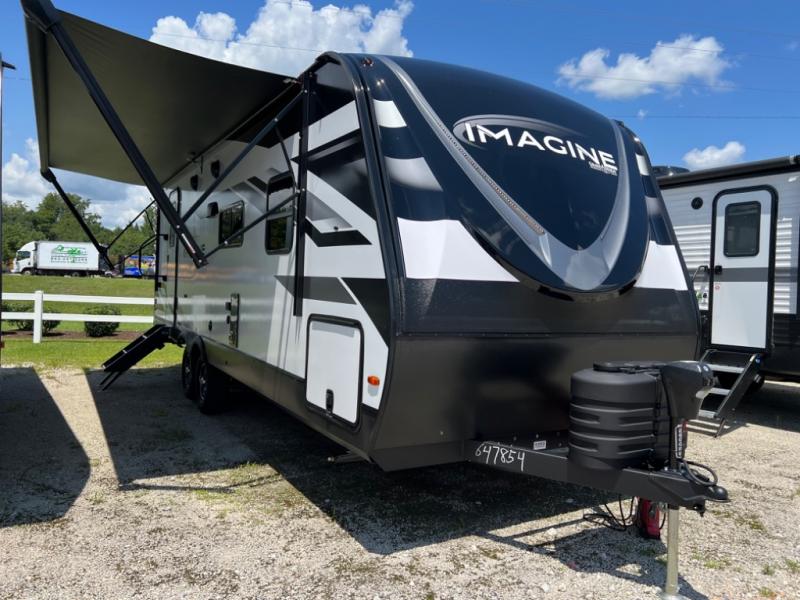Starting an RV-focused YouTube channel can be an exciting venture, combining your passion for RVing with content creation. Here's a step-by-step guide to help you kickstart your RV YouTube channel: Define Your Niche:Determine the specific focus of your channel. Are you interested in RV travel, maintenance, modifications, reviews, or a combination? ...
WEnRV travel news, products, and industry trends
One of the joys of RV ownership is hitting the open road with confidence, knowing your mobile abode is as ready for adventure as you are. Achieving this peace of mind requires regular maintenance, and the right products are crucial. RV Maintenance 101 is not just about fixing things when they break; it’s about proactive care that prevents issues from arising. Here are the essential products you should always have to keep your RV in top shape.
Leak Prevention with Roof Sealants
Your RV’s roof is vulnerable to the elements and regular wear and tear. Inspect it regularly and keep roof sealants handy to immediately address any minor cracks or leaks. Quality sealant not only fixes leaks but also prevents water damage and mold growth, which can be costly.
Tire Pressure and Care
Tires are your RV’s foundation, and their care is non-negotiable. Keep a high-quality tire pressure gauge in your toolkit to ensure tires are inflated to the manufacturer’s recommended level. Also, invest in tire covers and UV protectants to shield your tires from weathering and cracking when parked for extended periods.
The Cleanliness of Water Systems
Clean water is critical for a healthy RV experience. Stock up on water filters to ensure your supply is pure and safe for drinking and cooking. Use specialized cleaning solutions periodically to sanitize your water system and prevent bacterial buildup.
Slide Out and Seal Lubricants
Slide-outs increase your living space but require regular maintenance to operate smoothly. Use a lubricant designed for RV slide-outs to protect and maintain their mechanisms. Additionally, apply rubber seal conditioners to preserve the integrity of slide-out seals and prevent them from drying out and cracking.

Copyright
© RVingPlanet
Using Command Cord Bundlers in your RV can help you manage and organize cables, cords, and other items. Here's how you can use them effectively: Steps:Select a Suitable Surface:Identify the area in your RV where you want to organize cords. This could be behind the TV, near charging stations, or any other location where cords tend to get tangled.Cle...
The East Coast of the United States is home to numerous national parks that offer stunning natural landscapes and opportunities for RVing (Recreational Vehicle travel). Here are some notable East Coast national parks where you can enjoy RV camping and exploration: 1. Acadia National Park (Maine):Located on Mount Desert Island, Acadia National Park ...
For many, owning an RV is a ticket to freedom, adventure, and making lasting memories with family and friends. As a first-time buyer, choosing the right RV might seem daunting. From understanding different RV types to figuring out what features you need, this comprehensive guide will walk you through the key factors to consider, ensuring your introduction to the RV lifestyle is as smooth as possible.
Understand Your RV Types
RVs come in various shapes and sizes, each designed to suit different needs and travel styles. Here’s a quick rundown:
Travel Trailers: These are towed behind a car and come in various sizes. They are ideal for those who want to use their vehicle for separate excursions.Motorhomes: These are divided into Class A, B, and C units. Class A is the largest and most luxurious. Class B, or campervans, are smaller and more agile. Class C is mid-sized and offers a blend of comfort and maneuverability.Fifth Wheels: These are similar to travel trailers but with an in-bed hitch connection, offering more living space and stability.Pop-Up Campers: Compact and foldable, these are the simplest and lightest RVs, great for casual and infrequent campers.Toy Haulers: Feature a garage space to haul motorcycles, ATVs, or other equipment.Get this Coachmen RV Encore 325SS Motor Home Class A today!Define Your Budget
Your budget will significantly influence your choice of RV. Remember that the purchase price is just the beginning. Consider additional costs such as fuel, insurance, maintenance, and campsite fees. Decide on a price range that’s comfortable for you and explore financing options if necessary.
Get a great deal on this Grand Design Imagine 15BH Travel Trailer today!Consider Your Travel Lifestyle
Ask yourself these questions: How often will you use your RV? Will you be weekend warriors or full-timers? Your usage frequency and desired comfort level are pivotal in making the right choice. If you plan to live in your RV for extended periods, look for one with ample living space and home-like amenities.
Get a great deal on this amazing Dutchmen RV Aspen Trail 260THLOFT Travel Trailer.Check the Towing Capacity and Amenities
If you decide on a towable RV, ensure your current vehicle can handle it. Verify your car or truck’s towing capacity to avoid any road mishaps. Also, list the amenities you need. Do you want a full kitchen, separate sleeping areas, or a full-size bathroom? Prioritize features based on your comfort needs and the type of traveling you plan.

Copyright
© RVingPlanet
Camp with the best. For 2024, a total of 164 Good Sam Campgrounds scored flawless 10/10★/10 Good Sam ratings based on our trusted and time-honored evaluation system.
Our rep teams travel across North America and check campgrounds for the cleanliness of restrooms and showers; environment, and visual appearance. Each category is rated on a scale of one to 10, and a star is added for exceptionally clean restrooms. You can also find top-rated Good Sam parks — along with parks that have a total ranking of 28 and higher — on our Top Rated Campgrounds page.
Parks With a 10/10*/10 rating:
Alabama’s Gulf Coast. Getty Images
Alabama 10/10*/10 Good Sam Campgrounds
| Ahoy RV Resort, Foley | Sugar Sands RV Resort, Gulf Shores |
Full moon over the Superstition Mountains near Apache Junction. Photo: Getty Images
Arizona 10/10*/10 Good Sam Campgrounds
| De Anza RV Resort, Amado | Good Life RV Resort, Mesa |
| Arizonian RV Resort, Apache Junction | Mesa Regal RV Resort ,Mesa |
| Sunrise RV Resort, Apache Junction | Sun Life RV Resort, Mesa |
| Superstition Sunrise RV Resort ,Apache Junction | Towerpoint Resort, Mesa |
| Weaver’s Needle RV Resort, Apache Junction | Valle Del Oro RV Resort, Mesa |
| Vista Del Sol RV Resort, Bullhead City | Desert Shadows RV Resort, Phoenix |
| Distant Drums RV Resort, Camp Verde | Far Horizons RV Resort, Tucson |
| Verde Ranch RV Resort,Camp Verde | Mission View RV Resort, Tucson |
| River Sands RV Resort,Ehrenberg | Rincon Country West RV Resort, Tucson |
| Pueblo El Mirage RV & Golf Resort, El Mirage | Bonita Mesa RV Resort,Yuma |
| Canyon Vistas RV Resort, Gold Canyon | Del Pueblo RV Resort,Yuma |
| Gold Canyon RV & Golf Resort, Gold Canyon | Villa Alameda RV Resort,Yuma |
| Apache Wells RV Resort, Mesa | Westwind RV & Golf Resort,Yuma |
Golf reigns in the Indio area. Getty Images

Copyright
© RVingPlanet
Turning your RV into a comfortable and personalized home involves thoughtful planning and organization. Whether you're a full-time RVer or using your RV for extended trips, here are some tips to make your RV feel like home: **1. Personalize the Space:Decorate: Add personal touches with decor items such as throw pillows, blankets, and wall art. Choo...
AI-powered predictive maintenance for RVs involves using advanced algorithms to analyze data from various sensors and systems within the vehicle to predict potential issues before they occur. This proactive approach helps RV owners and operators avoid unexpected breakdowns, reduce repair costs, and increase the overall reliability of the vehicle. H...
Traveling in an RV with dogs can be a wonderful experience, providing adventure and bonding time for both you and your furry companions. However, it requires some preparation to ensure a safe and enjoyable journey. Here are some tips for RV travel with dogs: Secure Travel Space:Create a safe and comfortable space for your dog during travel. Conside...
Skywatchers across the U.S., Mexico, and Canada are preparing to celebrate the total solar eclipse on April 8. Festivals and special events along the eclipse’s path will feature music, fun, and opportunities to observe the phenomenon as it casts its dramatic shadow.
During this rare celestial event, the moon will blot out the sun over parts of the South, Midwest, New England, and Canada. The resulting shadow will travel along the roughly 100-mile-wide “path of totality.” While the total eclipse will last mere minutes, there are plenty of opportunities to extend the festivities in the preceding hours and days. Consult NASA’s Total Eclipse website for locations and times for eclipse watching across North American states and provinces.
If you haven’t already made your travel plans, learn more about where to camp for the 2024 total solar eclipse and get the answers to some frequently asked questions. While campgrounds and hotels are booking fast, you can still attend a festival or special eclipse event even if you aren’t staying nearby.
Special solar eclipse glasses will be handed out at many events. Some will also offer a full schedule of entertainment, crafts, speakers, and more. While many locations are hosting festivals on the day of the eclipse, a few are taking advantage of the full weekend with three- or four-day events.
Here is a look at some of the 2024 solar eclipse festivities, along with some nearby Good Sam Campgrounds, taking place across the U.S.

Copyright
© RVingPlanet
Embarking on an RV trip can be both thrilling and challenging, and seeking assistance is a natural part of the journey. Here are some common situations where you might need help and tips on asking for assistance during your RV trip: 1. Route and Navigation:Asking for Help: Seek advice from experienced RVers or use online forums to get recommendatio...
The term "RV snowbirds" refers to individuals or retirees who travel south during the winter months in their recreational vehicles (RVs) to escape the colder climates of the northern regions. This seasonal migration is a popular lifestyle choice for those looking to avoid harsh winter weather and enjoy a more temperate or warmer environment. Here a...
Embarking on off-the-grid RV adventures opens up a world of exploration and self-sufficiency. For RVers seeking the freedom of uncharted territories, harnessing the sun’s energy through solar power is revolutionary. In this blog, we’ll delve into the myriad benefits of RVs with solar power and showcase some of the top solar solutions available on RVingPlanet.com.
Get the most out of your stays with the Grand Design Imagine 2600RB Travel Trailer!Energy Independence
Solar power grants RVers unparalleled energy independence. Solar panels provide a continuous and renewable power source by capturing sunlight and converting it into electricity. This liberates RVers from the constraints of traditional power grids, allowing them to roam freely and experience the beauty of remote locations.
Save over $29K today on this Grand Design Reflection 370FLS Fifth Wheel!Economical Sustainability
Despite the initial investment, solar power offers substantial long-term cost savings. RVingPlanet.com features a range of solar products that enable RVers to tap into free energy from the sun, eliminating the need for costly campground fees or reliance on noisy generators. It’s an economically sound and environmentally friendly solution.
You’ll love the flexibility of this Grand Design Momentum MAV 27MAV Toy Hauler Travel Trailer.Quiet and Green Operation
Unlike conventional generators, solar power systems operate silently. This preserves the tranquility of off-the-grid locations and minimizes the environmental impact. Solar energy aligns perfectly with the eco-conscious values of RV enthusiasts, providing a clean and sustainable alternative.
Get an amazing experience when you travel in the Thor Motor Coach Tranquility 19L Motor Home Class B.Extended Boondocking Opportunities
Boondocking enthusiasts will appreciate the extended stay possibilities that solar power affords. Solar panels continuously charge batteries during the day, ensuring RVers have ample power for lighting, appliances, and electronic devices, allowing them to extend their stay in picturesque locations.

Copyright
© RVingPlanet
Long-term RV parking, also known as extended stay or full-time RV living, involves finding a location where you can park your recreational vehicle for an extended period. This lifestyle is popular among individuals and families seeking flexibility, adventure, or a more affordable way of living. Here are some tips for long-term RV parking: 1. RV Par...
Making friends while traveling in an RV can be a rewarding experience, offering opportunities to connect with like-minded individuals and enrich your journey. Here are some strategies to help you make friends on the road: 1. Stay at RV Parks and CampgroundsSocial Settings: RV parks and campgrounds are social hubs where you can meet fellow travelers...
Embarking on your first RV trip is a moment filled with excitement, anticipation, and a sense of adventure. It's a unique experience that combines the thrill of travel with the comforts of home. Here are some aspects of what makes setting out on an RV journey for the first time so special: 1. Preparation and AnticipationPlanning the Route: Mapping ...
Embarking on an RV trip across the United States offers a unique opportunity to explore diverse landscapes and iconic destinations. Some routes have gained legendary status among RV enthusiasts for their scenic beauty, historical significance, and the wide array of experiences they offer. Here are some legendary RV trips in the U.S.: 1. Route 66: T...


